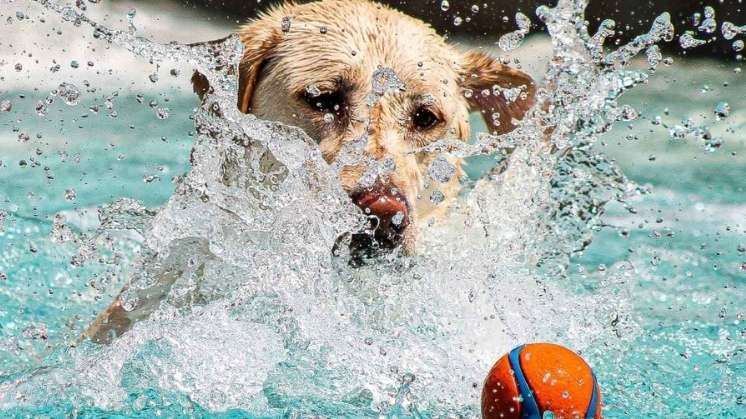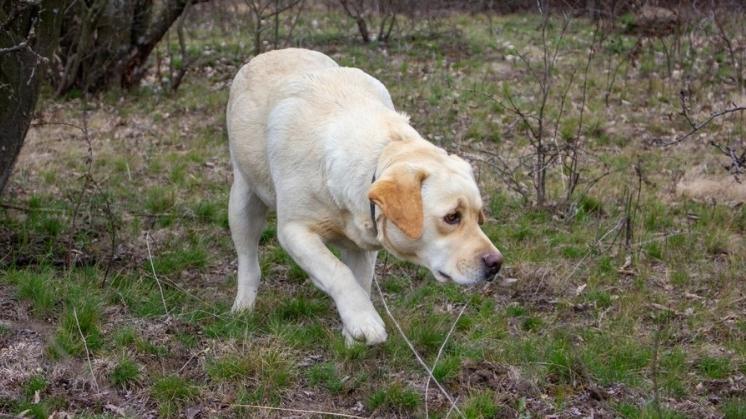
Why Fresh Water Matters for Senior Labrador Retrievers
As your beloved Labrador Retriever enters their senior years—typically around age 7 and beyond—their body undergoes numerous physiological changes that significantly impact their hydration needs and ability to maintain proper fluid balance. Aging kidneys become less efficient at concentrating urine and conserving water, medications commonly prescribed for senior dogs can have dehydrating side effects, and changes in activity levels often mean less natural water consumption through panting and exercise-induced thirst.
While it might seem like a basic part of daily care that any dog owner handles automatically, clean, fresh water actually becomes one of the most powerful and accessible tools you have to keep your senior Lab healthy, mobile, and comfortable throughout their golden years. Understanding the critical role hydration plays in senior dog health can help you make informed decisions that significantly impact your aging companion's quality of life and longevity.
The importance of proper hydration extends far beyond simply quenching thirst. For senior Labradors, adequate water intake becomes a cornerstone of preventive healthcare, supporting kidney function, joint health, cognitive clarity, and overall cellular function that naturally declines with age.
Understanding the Aging Labrador's Changing Hydration Needs
Physiological Changes That Affect Water Balance
As Labradors age, several key physiological changes occur that directly impact their hydration status and water requirements. The kidneys, which play a crucial role in maintaining fluid balance, begin to show signs of decreased efficiency. Nephrons—the functional units of the kidney—naturally decrease in number and function over time, making it more difficult for senior dogs to concentrate urine and conserve water effectively.
Additionally, the thirst mechanism itself can become less sensitive with age. Senior dogs may not feel thirsty as readily as younger dogs, even when their bodies need fluids. This decreased thirst sensitivity, combined with reduced kidney efficiency, creates a perfect storm for dehydration risk in older Labradors.
Medication Impact on Hydration
Many medications commonly prescribed for senior dogs can affect hydration status. Diuretics used for heart conditions increase urine production, while certain pain medications and antibiotics can impact kidney function or increase water needs. Even supplements like glucosamine and fish oils can have mild diuretic effects in some dogs.
Understanding how your senior Lab's medications might affect their hydration needs allows you to work with your veterinarian to adjust water intake recommendations and monitoring protocols accordingly.
Activity Level and Metabolic Changes
Senior Labradors typically have reduced activity levels compared to their younger selves, which might initially seem like it would decrease their water needs. However, reduced activity often means less panting, which is a natural way dogs regulate body temperature and trigger thirst. Additionally, age-related metabolic changes can affect how efficiently the body processes and utilizes fluids.
How Dehydration Impacts Senior Labs
Even mild dehydration—as little as a 5% loss of body water—can cause significant issues for older dogs, creating a cascade of health problems that can dramatically impact their comfort and quality of life.
Joint Health and Mobility
- Joint stiffness and pain – Synovial fluid, which lubricates joints, is primarily composed of water. Less lubrication means more discomfort in aging joints already dealing with arthritis or other degenerative conditions.
- Cartilage health – Proper hydration helps maintain cartilage elasticity and shock-absorbing properties, which are crucial for comfortable movement in senior dogs.
- Muscle function – Dehydrated muscles are more prone to cramping and fatigue, making movement more difficult and potentially painful for senior Labs.
Kidney and Urinary Health
- Kidney strain – Aging kidneys already work harder to filter waste products; dehydration significantly increases the risk of kidney damage and can accelerate the progression of chronic kidney disease.
- Toxin buildup – Insufficient water intake impairs the kidneys' ability to flush waste products from the bloodstream, leading to dangerous toxin accumulation.
- Urinary tract infections – Concentrated urine creates an environment more conducive to bacterial growth, increasing UTI risk in senior dogs.
Digestive Function
- Digestive issues – Constipation and dry, hard stools become more common without adequate fluid intake, as the body attempts to conserve water by extracting more from the digestive tract.
- Nutrient absorption – Proper hydration is essential for optimal nutrient absorption, which becomes increasingly important as senior dogs may have decreased appetite or digestive efficiency.
- Oral health – Adequate saliva production, which depends on proper hydration, helps maintain oral health and makes eating more comfortable.
Cognitive and Neurological Function
- Confusion or lethargy – Even mild dehydration can affect cognitive clarity and energy levels, potentially exacerbating age-related cognitive decline in senior dogs.
- Temperature regulation – Dehydrated dogs struggle to regulate body temperature effectively, making them more susceptible to heat stress or hypothermia.
Senior Labradors are often less likely to seek out water instinctively due to decreased thirst sensitivity and mobility limitations, making it crucial for pet parents to take proactive steps to ensure adequate hydration.
Comprehensive Hydration Strategies for Senior Labs
- Refresh their water bowl at least twice daily, ideally more frequently. Senior Labs can become increasingly picky about water freshness—if the water tastes stale, contains debris, or has been sitting too long, they may avoid drinking altogether.
- Use stainless steel or ceramic bowls rather than plastic, which can harbor bacteria and develop odors that might deter drinking.
- Clean water bowls thoroughly with hot, soapy water daily to prevent biofilm buildup and bacterial growth.
Strategic Water Placement
- Place multiple bowls around the house, especially near favorite resting areas, sleeping spots, and on each level of multi-story homes. Senior dogs with mobility issues may be reluctant to walk far for water.
- Consider elevated water bowls to reduce neck strain for dogs with arthritis or other mobility issues.
- Ensure easy access by placing bowls away from high-traffic areas where a senior dog might feel rushed or stressed while drinking.
Enhanced Hydration Methods
- Invest in a pet water fountain to encourage drinking with fresh, flowing water. Many dogs find the sound and movement of flowing water more appealing than static bowl water.
- Add water or low-sodium broth to their kibble for added moisture content. This is particularly helpful for dogs who primarily eat dry food.
- Offer ice cubes as treats – many Labs enjoy crunching on ice, providing both hydration and enrichment.
- Consider wet food options or adding water to dry food to increase overall moisture intake.
Monitoring and Tracking
- Monitor their water intake daily and note any sudden increases or decreases—significant changes may indicate underlying health issues that require veterinary attention.
- Keep a hydration log if your dog has kidney disease or other conditions that affect fluid balance.
- Weigh your dog regularly as sudden weight loss can sometimes indicate dehydration, while weight gain might suggest fluid retention.
Environmental Factors Affecting Senior Lab Hydration
Seasonal Considerations Summer heat obviously increases hydration needs, but winter heating systems can also cause dehydration through dry indoor air. Senior dogs may be less able to adapt to temperature extremes, making year-round hydration monitoring essential.
Indoor Air Quality Central heating and air conditioning can significantly reduce indoor humidity, increasing the risk of dehydration. Consider using humidifiers during dry seasons, particularly in rooms where your senior Lab spends most of their time.
Travel and Routine Changes Senior dogs can be more sensitive to changes in routine, including changes in water source. When traveling or during routine disruptions, pay extra attention to ensuring your Lab continues to drink adequately.
Recognizing Dehydration in Senior Labs
Early Warning Signs Keep an eye out for these warning signs that may indicate developing dehydration:
- Dry nose or gums – While a warm nose isn't always concerning, persistently dry mucous membranes can indicate dehydration
- Sunken eyes – The eyes may appear to sit deeper in their sockets when dehydration occurs
- Lethargy or weakness – Unusual tiredness or reluctance to engage in normal activities
- Skin "tenting" – When skin on the back of the neck is gently pulled up, it should snap back immediately. Slow return indicates dehydration
- Thick, sticky saliva – Normal saliva should be thin and watery
- Dark yellow urine – Properly hydrated dogs produce pale yellow urine
Advanced Dehydration Symptoms More severe dehydration may cause:
- Vomiting or diarrhea – Can both cause and result from dehydration
- Loss of appetite – Dehydrated dogs often lose interest in food
- Rapid heart rate – The heart works harder when blood volume decreases
- Cool extremities – Ears and paws may feel cooler than normal
If you notice any of these signs, especially the more advanced symptoms, contact your veterinarian immediately—dehydration can quickly become life-threatening for older dogs.
Working with Your Veterinary Team
Regular Monitoring Discuss hydration monitoring as part of your senior Lab's regular veterinary care. Blood tests can reveal early signs of dehydration or kidney function changes before obvious symptoms appear.
Medication Adjustments Work with your vet to understand how any medications might affect your dog's hydration needs and adjust monitoring accordingly.
Underlying Health Conditions Conditions like diabetes, kidney disease, and heart problems can all affect hydration status. Understanding how these conditions impact your dog's water needs helps you provide optimal care.
Special Considerations for Different Health Conditions
Kidney Disease Dogs with chronic kidney disease may need increased water intake but should be monitored carefully for fluid retention. Your veterinarian may recommend specific hydration protocols.
Heart Conditions Dogs with heart problems may need fluid intake restrictions in some cases, making professional guidance essential for balancing hydration needs with cardiac health.
Diabetes Diabetic dogs often have increased thirst and urination, requiring careful monitoring to ensure adequate hydration while managing blood sugar levels.
Creating a Hydration-Friendly Environment
Making Water More Appealing Some senior dogs develop preferences for certain types of water or bowls. Experiment with:
- Different bowl materials (stainless steel, ceramic, glass)
- Various water temperatures (some dogs prefer slightly warm water)
- Flavoring with low-sodium broth or bone broth made specifically for dogs
- Adding a small amount of wet food juice to encourage drinking
Accessibility Improvements Ensure your senior Lab can easily access water by:
- Providing non-slip mats around water bowls to prevent falls
- Using wide, shallow bowls for dogs with breathing difficulties
- Installing ramps or steps if water bowls are in elevated locations
Final Thoughts: The Foundation of Senior Health
Hydration isn't just about keeping your Lab's thirst quenched—it's about supporting their aging organs, easing their joints, maintaining cognitive function, and giving them the best possible quality of life as they navigate their golden years. Something as simple as ensuring access to clean, fresh water and monitoring intake can add significant comfort and potentially extend longevity during your dog's senior years.
The beauty of focusing on hydration lies in its simplicity and immediate impact. Unlike many aspects of senior dog care that require expensive interventions or complex management protocols, proper hydration is something every pet parent can provide with just attention, consistency, and care.
By understanding your senior Lab's changing hydration needs and implementing strategies to encourage adequate water intake, you're providing one of the most fundamental and powerful supports for their aging body. This simple act of care represents a daily investment in their comfort, health, and happiness—a small effort that yields tremendous rewards in the form of more comfortable days and potentially more time together.
Remember that every senior Lab is unique, and hydration needs can vary based on health status, medications, activity level, and environmental factors. Working closely with your veterinary team ensures that your hydration strategy is tailored to your individual dog's needs and adjusted as those needs change over time. The goal is not just survival but thriving—helping your senior Lab enjoy their golden years with the comfort and vitality that proper hydration can provide.
📸 Photo Credits: Featured images in this article are licensed from Shutterstock



